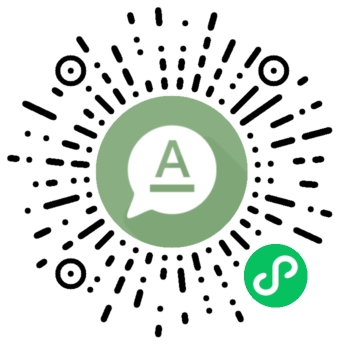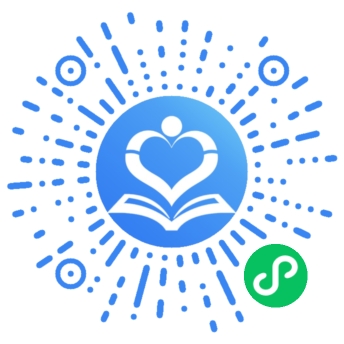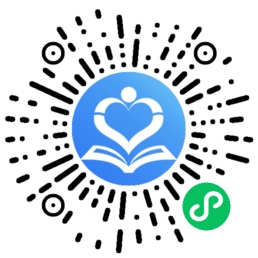中共党史专业介绍
中国共产党历史专业属于法学门类,政治学一级学科,该专业主要研究中国共产党的历史发展、理论政策与实践,探索中国共产党领导中国革命、建设、改革和党的建设的历史经验教训,揭示中国共产党执政规律、社会主义建设规律、人类社会发展规律。
英语单词分类 轻松记单词
puzzle
英['pʌzl] 美['pʌzl]
"he loved to solve chessmate puzzles"
"that's a real puzzler"
"This beats me!"
"Got me--I don't know the answer!"
"a vexing problem"
"This question really stuck me"
"We puzzled over her sudden departure"
1.使迷惑;使困惑
If somethingpuzzles you, you do not understand it and feel confused.
puzzle是什么意思
e.g. My sister puzzles me and causes me anxiety.
我妹妹总让我捉摸不透,弄得我焦虑不安。
2.对…苦苦思索;因…大伤脑筋
If youpuzzle over something, you try hard to think of the answer to it or the explanation for it.
e.g. In rehearsing Shakespeare, Ipuzzle over the complexities of his verse and prose.
在排演莎士比亚的戏剧时,其中诗句和散文的复杂让我大伤脑筋。
3.难题;智力问题(或游戏、玩具);谜
Apuzzle is a question, game, or toy which you have to think about carefully in order to answer it correctly or put it together properly.
e.g. ...a wordpuzzle.
字谜
4.令人费解的人;令人困惑的事物
You can describe a person or thing that is hard to understand asa puzzle .
e.g. Data from Voyager II has presented astronomers with apuzzle about why our outermost planet exists...
“旅行者二号”发回的数据给天文学家们提出了一个难题:离我们最远的那颗行星为什么会存在。
e.g. She was apuzzle.
她是个谜。
相关词组:puzzle out
1. 拼图:这是一个大家可以一起共同玩拼图游戏,叫做 Copuzzle ,是一起(co-) 拼图(puzzle) 的意思. 一开始会先给你会得到部分拼图碎片,之后每过一段时间后会多给你更多碎片,目标是完成每张拼图. 你有越多朋友一起玩可以额外得到更多好处!
2.puzzle:puz; 益智游戏
Will you help me to solve this puzzle?
你能帮助我解决这个难题吗?
He sat frowning over a crossword puzzle.
他坐着皱着眉头在思考纵横字谜。
Her decision was a puzzle to him.
她的决定对他来说是个谜。
She could not get the puzzle out of her mind.
她无法解开心中的疑虑。
He is in a puzzle about the matter.
他对这件事大惑不解。
The question puzzled me.
这个问题把我难住了。
I've never been able to puzzle her out.
我一直对她捉摸不透。
I have in mind some doubts which really puzzle me.
我心中有一个疑团, 百思不得其解。
I saw him puzzle over a math problem.
我看见他正在苦心思索一道数学题。
She listened with a puzzled expression on her face.
她脸上带著困惑的表情在倾听。
a crossword puzzle
纵横字谜
a book of puzzles for children
儿童谜语书
What puzzles me is why he left the country without telling anyone.
令我不解的是,他为什么悄悄地离开了这个国家。
one of the most puzzling aspects of the crime
这桩罪案最费解的一面
He was trying to puzzle out why he had been brought to the house.
他想弄明白自己为何被带到这所房子。
My sister puzzles me and causes me anxiety.
我妹妹总让我捉摸不透,弄得我焦虑不安。
In rehearsing Shakespeare, I puzzle over the complexities of his verse and prose.
在排演莎士比亚的戏剧时,其中诗句和散文的复杂让我大伤脑筋。
...a word puzzle.
字谜
Data from Voyager II has presented astronomers with a puzzle about why our outermost planet exists...
“旅行者二号”发回的数据给天文学家们提出了一个难题:离我们最远的那颗行星为什么会存在。
She was a puzzle.
她是个谜。
Rotation puzzle is the company's own design and development of new products.
旋转拼图亦是公司自行开发设计的又新产品.
At last they managed to puzzle out the meaning of the cipher.
最后他们终于弄清楚这符号是什么意思.
A mind blowing underwater puzzle gamePlunge with your mobile into a fun addictive puzzle experience!
本游戏是一个水下泡泡龙游戏,赶快来体验到这个吸引人的有趣设计吧.
I don't know the key to the puzzle.
我不知道这个谜语的答案.
You needn't puzzle over every single word or phrase in the book.
这本书用不着一字一句地抠.
I've never been able to puzzle her out.
我一直对她捉摸不透.
She was involved in working out a puzzle.
她在聚精会神地解一道难题.
It's good for students to puzzle things out for themselves.
让学生们自己思索解决难题很有好处.
Their reason for doing it is still a puzzle to me.
他们为什么干那件事仍然让我费解.
This puzzle baffles me.
这个谜使我困惑不解.
I'm in a puzzle as to what to do next.
对于下一步该做什么我也不知道.
I bet you can't do this puzzle.
我敢说,你解决不了这个难题.
I can't answer that puzzle; I give up.
我猜不出这个谜语, 我认输了.
The firemen were in a puzzle about the cause of the fire.
消防队员对这场火灾的起因困惑不解.
He was studying the map and puzzling about the easiest way to cross the mountains.
他在仔细察看地图,想找出最容易穿过山区的道路。
puzzle about wh-to-vWe puzzled for two months about where to put you.
为了安置你,我们苦思了两个月。
puzzle sth about sthThey all puzzled their brains about the problem.
他们都冥思苦想这个问题。
puzzle sb about wh-to-vThe student was puzzled about what to do next.
这个学生对下一步做什么而伤透了脑筋。
We could not puzzle out Mary's intention.
我们猜不出玛丽的意图。
He puzzled out the mystery story before he finished the book.
他在读完那本神秘小说前推测出它的结局。
It's good for students to puzzle things out for themselves.
让学生们自己思索解决难题很有好处。
I puzzled it out and made a translation of it.
我研究出其意义并把它翻译出来。
I've never been able to puzzle her out, and still can't.
我一直对她捉摸不透,到现在还是这样。
puzzle out wh-to-vWe finally puzzled out how to open the box.
我们最后终于想出怎样打开盒子。
puzzle out wh-clauseI've tried for weeks to puzzle out what could have made Mary so angry that she hasn't written to us.
几个星期以来,我一直在思索,究竟什么事使玛丽生这么大的气,连信都不给我们写。
I've been trying to puzzle out which piece of work is most urgent.
我一直想弄清楚哪一件工作最紧迫。
He was puzzling over the old map.
他在苦苦思考这幅旧地图。
They puzzled over the question for quite a while.
这问题他们想了很久。
puzzle oneself/sb over sthHe puzzled himself over the matter.
他对那件事绞尽脑汁。
She was puzzled over the decision.
她觉得这个决定难以理解。
She was puzzled over his strange behaviour.
他奇怪的举止使她大惑不解。
The boy puzzled his way through geometry.
那男孩煞费苦心地钻研几何学。
The result would be..utter puzzle and bewilderment.
出自:M. ArnoldThou art more puzzled than the Egyptians in their fog.
出自:Twelfth Night,ShakespeareThe question has always puzzled me.
出自:E. PeacockIt all fit so well together, like apuzzle.
这一切都非常吻合, 就像一个拼图。
2016上海卷
四川高考志愿填报方式:1、进入页面;2、修改密码;3、填报须知;4、查看个人基本信息;5、志愿类别选择;6、填写志愿和修改志愿;7、填写或修改志愿结束后,单击页面底部的[保存并提交]按钮,则所填写的志愿数据将得到保存,保存即表示该批次志愿已经提交。
高考成绩一般都会在考后15天左右公布,不过不同省份查询时间有所差别,具体以各省份发布时间为准。并且全国各省份高考成绩公布时间有所不同,不全在同一天,但绝大部分省市都集中在6月24日、6月25日两天公布高考成绩,有些省份会更早一点。
中国共产党历史专业属于法学门类,政治学一级学科,该专业主要研究中国共产党的历史发展、理论政策与实践,探索中国共产党领导中国革命、建设、改革和党的建设的历史经验教训,揭示中国共产党执政规律、社会主义建设规律、人类社会发展规律。
小学教育专业属于教育学门类、教育学一级学科,是我国教师教育体系的重要组成部分。小学教育专业坚持学高为师、身正为范。其主要培养德、智、体、美、劳全面发展,具备专业化的小学教师素养,能在小学及相关行业从事教育、教学和管理等方面工作的复合型人才。
钢琴伴奏作为一门中国普通高等学校的专科专业,属于文化艺术大类中的表演艺术类,修业年限为三年。该专业的目的是培养了解钢琴伴奏的基本理论知识和方法,具备较好的音乐创造能力,从事钢琴伴奏、艺术指导、钢琴演奏、教学辅导等工作的高素质技术技能人才。
影视多媒体技术专业是一门专科专业,属于新闻传播大类中的广播影视类。开设该专业的目的是培养全面发展,具有良好职业道德和人文素养,掌握影视多媒体技术基本知识和技能,具备影视后期制作、影视包装设计能力,从事影视编辑的高素质技术技能人才。
虚拟现实技术应用是一门互联网专业,属于电子与信息大类中的计算机类,基本修业年限为三年。专业主要研究仿真技术与三维计算机图形技术等方面基本知识和技能,具备虚拟现实软硬件平台设备搭建,从事虚拟现实、开发、调试等工作的高素质技术技能人才。
更多内容
关注微信小程序
学路英语小程序
 微信扫一扫,加入小程序
微信扫一扫,加入小程序
学路学习小程序
 微信扫一扫,加入小程序
微信扫一扫,加入小程序
学路高考小程序
 微信扫一扫,加入小程序
微信扫一扫,加入小程序
学路学习APP
 扫一扫,下载app
扫一扫,下载app